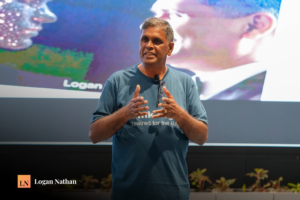Getting a website ranked on the first page of search engines is the dream of all businesses that rely on the internet to drive traffic and generate sales. There are many strategies to achieve this objective, including Pay-per-click advertising, article marketing, linking and search engine optimisation (SEO).
While pay-per-click marketing can get results faster, search engine optimisation is slow, but has the advantage of steady sustained results. Internet marketing experts have devoted years in honing their skills to perfect the science of Search Engine Optimisation. Businesses that have invested in SEO have derived significant benefits with their websites shooting up from nowhere to the first page on organic search listings.
The growing popularity of SMO
While there is no doubt that SEO is a powerful weapon in the hands of webmasters, there is now a new tool that offers tremendous potential to online marketers. Called Social Media Optimization (SMO), the concept involves implementing strategic changes in order to optimise a site so that it becomes easier to link to, achieves high visibility in social media searches on niche search engines such as Technorati, and get included frequently in relevant posts – on blogs, podcasts, vlogs and podcasts.
The result is that the website optimised using SMO gains more visibility, greater exposure on Technorati, more inbound links and an increase in targeted traffic. As always they underlying factor is to have content that offers value and creates a pleasurable visitor experience.
Marketers are looking for new online channels
While Google continues to dominate the way searches are conducted, marketers are looking for innovative alternatives and additional channels to distribute their content and marketing messages. Social search is one such alternative.
Some bloggers have begun calling SMO the next level of SEO. While there will be technical issues to resolve, it’s the multi channel and creative aspects of creating a “marketing pull” that seem to be defining the future direction of SEO.
Interestingly, as more people go online, they are looking for alternatives to Google generated traffic. They’ve optimised Google and other leading search engines, but want alternative sources of “free” traffic. SMO provides that option. Twitter, LinkedIn, FaceBook, MySpace, Digg, and YouTube are some such viral traffic generators.
How SMO is different from SEO
In its most basic form, SEO is a process involving three steps. The first step is to break down robot crawling barriers and help the search engines to efficiently index the website. The second step involves crafting content that is keyword-targeted so that it appeals to both search engines and also visitors alike. The third and most critical step is link-building for targeted search phrases and terms.
SMO, on the other hand basically involves breaking down the walls of content that is user-generated with the objective of being recognised a dynamic member of an online community. This is quite a complex process and takes time. Simply adding a “Digg This” button to a blog or website doesn’t imply every post or product offering is compelling enough to be considered buzzworthy.
SMO is simply another content optimisation tactic to lure in thousands of new visitors and also hundreds of inbound links. While it is scalable when it works, it doesn’t always work predictably.
The correct link bait, presented at the correct time, to the targeted audience, with the right message can deliver amazingly targeted traffic to a website or blog. For a new website, simply getting on Digg’s front page can offer instant credibility and exposure. For an established website, social media optimisation can help in strengthening the brand and draw in a completely new online audience.
The secret to succeeding with social media marketing is to know how to and when to leverage an online community to meet targeted goals while being a member of that community. To achieve that, one needs to know their audience and clearly be able to set some measurable goals.



